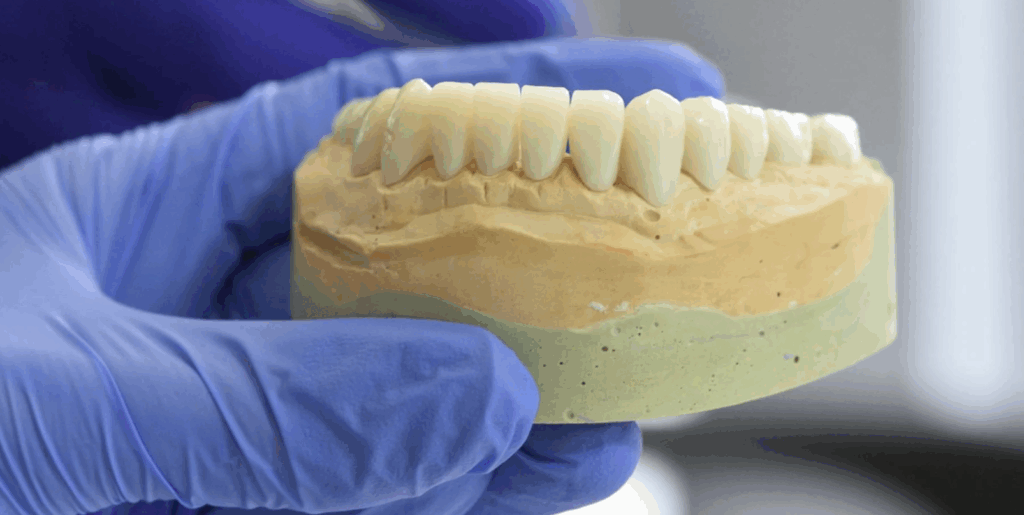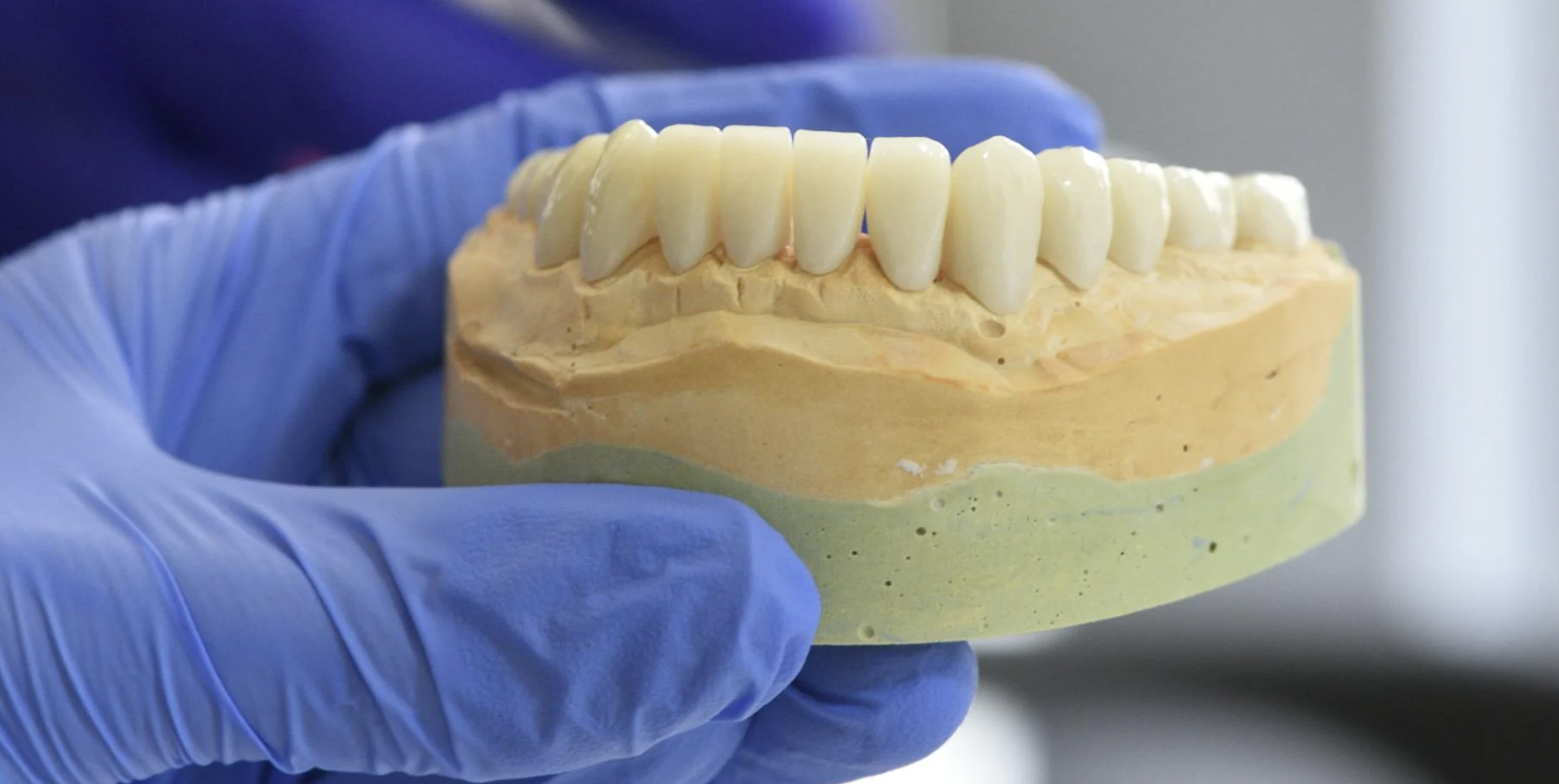
Losing teeth can be a challenging experience, affecting not just your ability to eat or speak but also your confidence and overall oral health. Thankfully, modern dentistry offers effective solutions to restore your smile: dentures and dental implants. Both options have their advantages and are widely used in tooth replacement treatments. But how do you choose which one is right for you?
In this article, we’ll explore the differences between complete dentures and dental implants, along with their benefits, drawbacks, and factors to consider before making your decision.
What Are Dentures?
Dentures are removable dental appliances designed to replace missing teeth. They can be made for the upper jaw, lower jaw, or both, depending on your needs. Dentures are typically crafted from acrylic, resin, or metal and are custom-fit to match the shape of your gums and mouth.
There are two main types of dentures:
1. Complete Dentures: These are used when all your natural teeth are missing. They rest directly on the gums and are held in place using suction or denture adhesives.
2. Partial Dentures: These are used when only some of your teeth are missing. Partial dentures are anchored to existing teeth using metal clasps or connectors.
Benefits of Dentures
1.Affordable compared to dental implants.
2.Non-invasive procedure with no surgery required.
3.Customizable to match the shape and color of your gums and teeth.
4.Can be easily adjusted or replaced over time.
Drawbacks of Dentures
1.May feel uncomfortable or loose over time.
2.Require daily cleaning and maintenance.
3.Do not prevent bone loss in the jaw.
4.May need to be replaced every 5-7 years.
What Are Dental Implants?
Dental Implants are a permanent solution for replacing missing teeth. The process involves surgically placing a small titanium post into the jawbone to act as an artificial tooth root. Once the implant fuses with the bone (a process called osseointegration), a crown, bridge, or denture is attached to the implant, creating a natural-looking and functional tooth replacement.
Implants are often part of dental implants, which is a specialized field focusing on permanent, stable tooth replacement solutions.
Benefits of Dental Implants
Permanent and durable, lasting 20+ years with proper care.
Provide a natural look and feel, similar to real teeth.
Prevent bone loss by stimulating the jawbone.
Do not require adhesives or removal for cleaning.
Improve chewing efficiency and speech clarity.
Drawbacks of Dental Implants
Higher upfront cost compared to dentures.
Requires a surgical procedure, which may not be suitable for everyone.
Healing time can take several months.
Requires sufficient jawbone density for the implant to anchor properly.
Suggested Read: 5 Warning Signs of Gum Disease You are Probably Ignoring – And How to Treat Them
Comparing Dentures and Dental Implants
1.Appearance and Comfort
Dentures: While modern dentures are designed to look natural, they may sometimes feel bulky or slip out of place. Over time, bone loss in the jaw can cause dentures to fit poorly, requiring adjustments.
Dental Implants: Implants are virtually indistinguishable from natural teeth. They feel more comfortable and secure because they are anchored in the jawbone.
2.Functionality
Dentures: Dentures may require practice to speak and eat comfortably. Certain foods, like sticky or hard items, might be difficult to chew.
Dental Implants: Implants function like natural teeth, making it easier to enjoy all types of foods without restrictions.
3.Durability
Dentures: With proper care, dentures last around 5-7 years before they need to be replaced or adjusted.
Dental Implants: Implants can last a lifetime with good oral hygiene and regular dental check-ups.
4.Cost
Dentures: Dentures are generally more affordable upfront, making them a popular choice for budget-conscious individuals.
Dental Implants: Implants have a higher initial cost but offer long-term value because they don’t need frequent replacements.
5.Jawbone Health
Dentures: Since dentures rest on the gums, they do not stimulate the jawbone, leading to gradual bone loss over time.
Dental Implants: Implants help maintain jawbone density, preventing bone loss and preserving facial structure.
Factors to Consider
When deciding between dentures and dental implants, consider the following factors:
Your Budget:
If you’re looking for a cost-effective solution, dentures might be the better option. However, implants can save you money in the long run.
Your Oral Health:
If you have sufficient jawbone density and healthy gums, you may be a good candidate for dental implants.
Your Lifestyle:
Implants offer more convenience and functionality for people with active lifestyles, while dentures require regular maintenance.
Your Long-Term Goals:
If you value durability and a natural look, implants may be worth the investment.
Which Option Is Right for You?
Both dentures and dental implants are excellent solutions for replacing missing teeth. The right choice ultimately depends on your unique needs, budget, and oral health.
At Jain’s Dental Villa, we specialize in complete dentures and dental implants, offering personalized treatments to restore your smile and confidence. Whether you choose dentures or dental implants, our team is here to guide you through the process and ensure the best results for your oral health.
Conclusion
Restoring your smile is a significant decision, and understanding the pros and cons of dentures and dental implants can help you make an informed choice. Dentures are affordable and non-invasive, while implants provide a permanent, natural-looking solution.
If you’re unsure which option is right for you, schedule a consultation at Jain’s Dental Villa today. Let us help you achieve a healthy, beautiful smile that lasts a lifetime!

